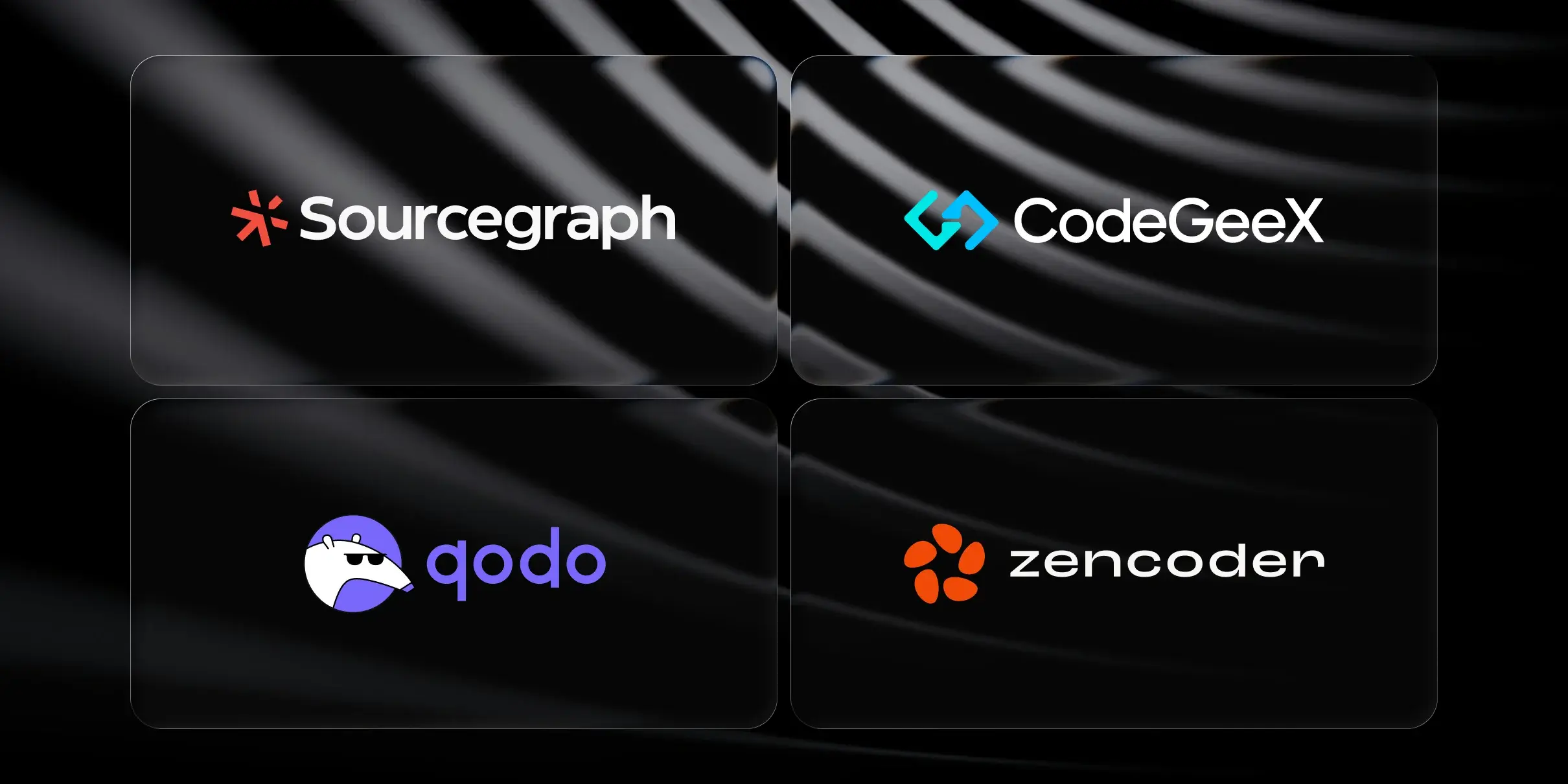Introduction
Imagine having a highly knowledgeable coding partner who can help you write software by suggesting what to write next or even writing entire pieces of code for you. This is exactly what AI coding agents do. Tools like Zencoder AI, GitHub Copilot, and Amazon CodeWhisperer have transformed how developers write software by acting as intelligent assistants that understand programming languages and can help create code.
These AI assistants are only as good as the data they learn from – much like how a human developer learns from studying existing code and documentation. This article explores where these AI assistants get their knowledge from and how that knowledge is kept accurate and reliable.
Understanding AI Coding Agents
What Are AI Coding Agents?
AI coding agents are like smart autocomplete tools for programming. Just as your phone predicts the next word you might type in a text message, these tools predict and suggest what code you might want to write next. However, they're much more sophisticated – they can understand the context of what you're trying to build and can even write entire functions based on simple descriptions.
Zencoder, a pioneering AI startup, takes this concept to the next level with its cutting-edge AI coding agents. Unlike traditional AI assistants that sometimes generate inaccurate code, Zencoder’s platform integrates advanced agentic workflows and static code analysis to enhance accuracy and reliability. With proprietary technologies like Repo Grokking™, Agentic Repair™, and Agentic Loop™, Zencoder empowers developers to not only write code faster but also improve its quality and maintainability. By automating tedious coding tasks, Zencoder allows engineers to focus on innovation—bringing true efficiency and "zen" back into software development.
Real-World Examples
Let's look at some practical examples of how these AI assistants help developers:
1. Converting English to Code Here's how a simple English description can be turned into working code:# Developer writes this comment:
# Create a function that checks if a word is a palindrome
# (reads the same forwards and backwards, like "radar" or "level")
# AI suggests this code:
def is_palindrome(word):
# Convert the word to lowercase to ignore case
word = word.lower()
# Compare the word with its reverse
return word == word[::-1]
Why this matters: Instead of having to figure out the logic themselves, a developer can simply describe what they want, and the AI understands and creates the necessary code. Think of it like asking someone "Could you write me a recipe for chocolate cake?" and getting back a complete, detailed recipe.
2. Helping With Common Programming Tasks When developers need to work with files, AI coding agents can suggest proven, secure ways to do so:# Developer writes this comment:
# Read contents of a text file safely
# AI suggests this code:
def read_file(filename):
try:
with open(filename, 'r') as file:
return file.read()
except FileNotFoundError:
print(f"Sorry, the file {filename} doesn't exist")
except Exception as e:
print(f"An error occurred: {e}")
return None
This example shows how AI assists with:
- Opening files correctly (using the 'with' statement, which automatically closes files)
- Handling errors that might occur (like missing files)
- Writing code that follows best practices for safety and reliability
The Role of Data in AI Coding Agents
Where Do AI Coding Agents Learn From?
Think of how human developers learn:
- They read documentation
- They study example code
- They learn from other developers' solutions
- They reference programming guides
AI coding agents learn similarly, but at a massive scale. Their main sources include:
1. Public Code Repositories- GitHub: Millions of public projects
- Stack Overflow: Questions and answers about coding
- Documentation websites
- Programming tutorials
Real-world example: When you're building a website and need to create a contact form, the AI has learned from thousands of similar forms created by other developers. It knows common patterns like:
- What fields are typically included
- How to validate email addresses
- How to handle form submission
- How to provide user feedback
- Official programming guides
- Tutorial websites
- Best practice guides
- Security guidelines
Quality Control: Ensuring Good Code
Just as restaurants have health inspectors, AI coding agents have systems to ensure their suggestions are good quality. Here's what they check for:
1. Code Quality- Does the code work correctly?
- Is it easy to understand?
- Does it follow security best practices?
- Is it efficient?
Example of good vs problematic code:
# Good code suggested by AI:
def get_user_age(birth_year):
current_year = 2024
if birth_year > current_year:
return "Birth year cannot be in the future"
age = current_year - birth_year
return age
# Problematic code the AI would avoid:
def age(by):
return 2024-by # No error checking, unclear variable names
The good code:
- Has clear variable names (birth_year instead of by)
- Checks for invalid input
- Is easy to understand
- Includes error handling
# Developer asks: "How to run a command on the computer"
# AI suggests this safer approach:
import subprocess
def run_safe_command(command_list):
"""
Safely run a command using a list of arguments
Example: run_safe_command(['ls', '-l'])
"""
try:
result = subprocess.run(command_list,
capture_output=True,
text=True,
check=True)
return result.stdout
except subprocess.CalledProcessError as e:
return f"Error running command: {e}"
This code is safer because it:
- Uses a secure way to run commands
- Prevents command injection attacks
- Handles errors properly
- Provides clear documentation
Ensuring Data Quality
How AI Coding Agents Learn Good Practices
Consider how a junior developer might learn from a senior developer:
- They observe good coding practices
- They get code reviews
- They learn from feedback
- They study well-written code
AI coding agents learn similarly but from millions of examples. They learn to recognize:
1. Patterns of Good Code- Clear organization
- Proper error handling
- Good documentation
- Efficient solutions
- Security vulnerabilities
- Performance problems
- Hard-to-maintain code
- Poor error handling
Real-World Impact
Let's look at a practical example of how this learning affects real code:
# Developer request: "Create a function to save user data"
# AI suggests this comprehensive solution:
def save_user_data(user_info):
"""
Safely save user information to a database
Args:
user_info (dict): Dictionary containing user data
(name, email, age)
Returns:
bool: True if successful, False if error occurs
"""
try:
# Validate required fields
required = ['name', 'email', 'age']
if not all(field in user_info for field in required):
print("Error: Missing required user information")
return False
# Add timestamp for when data was saved
user_info['saved_at'] = datetime.now()
# Save to database (example)
save_to_database(user_info)
print(f"Successfully saved data for user {user_info['name']}")
return True
except Exception as e:
print(f"Error saving user data: {e}")
return False
This example shows how AI has learned to:
- Include clear documentation
- Validate input data
- Handle errors gracefully
- Provide useful feedback
- Follow security best practices
Future Developments
The future of AI coding agents looks promising, with improvements expected in:
- Better Understanding
- Understanding more complex requirements
- Generating more accurate code
- Providing better explanations
- Enhanced Security
- Better detection of security issues
- Stronger protection against vulnerabilities
- More secure coding patterns
- Improved Learning
- Learning from more diverse sources
- Better understanding of context
- More accurate suggestions
Conclusion
AI coding agents represent a powerful tool for developers, built on vast amounts of carefully curated and quality-controlled data. Their effectiveness comes from:
- Learning from millions of real-world code examples
- Understanding coding best practices
- Implementing strong security measures
- Continuously improving through new data
As these systems continue to evolve, their ability to assist developers while maintaining high standards of code quality and security will only improve. The key to their success lies in the quality of their training data and the sophisticated systems that ensure they suggest only the best, most reliable code.

![Spec-Driven Development: Everything You Need to Know [2026]](https://zencoder.ai/hubfs/Cover-Feb-17-2026-08-47-58-1236-PM.webp)

